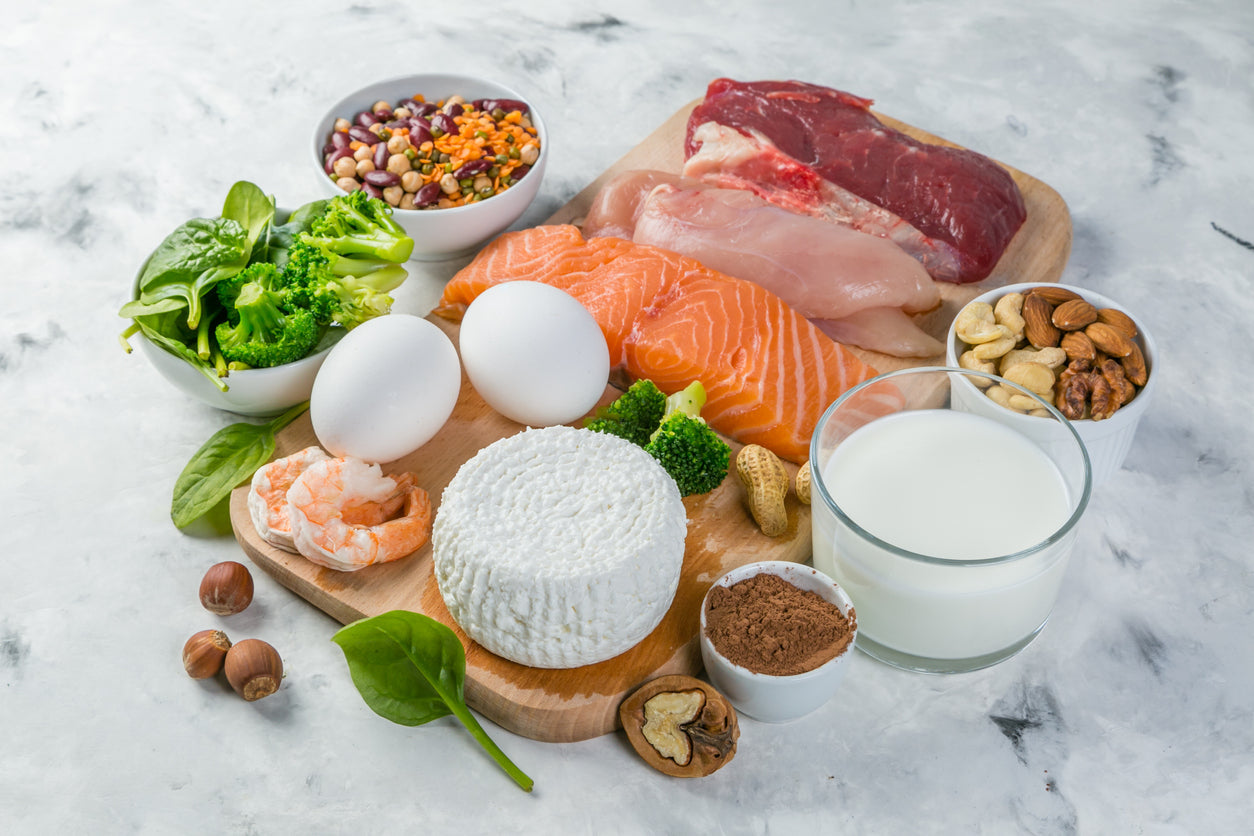Protein, often called the building block of life, plays a crucial role in maintaining nearly all bodily functions, including chemical reactions, regulation of gene expression, structural elements of cells, regulating the immune system, and the formation of muscle. But how do you know if you're not consuming enough of it? Here are nine signs to watch out for:

Symptoms of Low Protein Intake
- Constant Fatigue: Feeling tired all the time might indicate a lack of protein. Proteins provide energy and help repair tissues, so insufficient intake can lead to fatigue.
- Hair, Skin, and Nail Issues: Brittle nails, thinning hair, or dry skin can be signs of inadequate protein consumption. Proteins support the growth and repair of these tissues.
- Muscle Weakness: If your muscles feel weak or you struggle with strength-based activities, it might be due to insufficient protein. Muscles require protein for growth and repair.
- Frequent Illness: Proteins are essential for a strong immune system. If you're frequently falling ill, it could be a sign of insufficient protein intake affecting your body's defence mechanisms.
- Slow Recovery: After exercise or injury, a slow recovery could indicate low protein intake. Protein helps repair and build tissues, aiding in quicker recovery.
- Changes in Mood: Protein plays a role in the production of neurotransmitters like dopamine and serotonin. Low protein levels might lead to mood swings or irritability.
- Difficulty Losing Weight: Protein aids in satiety and boosts metabolism. If weight loss is a challenge, it could be due to inadequate protein, leading to increased hunger and slower metabolism.
- Swelling: Protein is essential for maintaining fluid balance. Oedema or swelling might occur if protein levels are low, causing fluids to accumulate in tissues.
- Difficulty Sleeping: Protein assists in the production of sleep-regulating hormones. Low protein intake might disrupt sleep patterns.

Protein Sources and Different Diets
Different diets have varying approaches to protein intake:
- Vegetarian/Vegan: Legumes, tofu, tempeh, nuts, seeds, and soy products are primary protein sources.
- Paleo: Emphasizes animal proteins like meat, fish, and eggs along with nuts and seeds.
- Keto: Focuses on moderate protein intake along with high fat. Protein sources include meat, fish, eggs, and some dairy.
- Mediterranean: Relies on fish, poultry, legumes, and nuts for protein.
Best Protein Foods
- Salmon: Rich in omega-3 fatty acids and protein.
- Chicken Breast: Lean and packed with protein.
- Greek Yogurt: High in protein and probiotics.
- Quinoa: A complete plant-based protein source.
- Eggs: Affordable and versatile protein source.
- Lentils: Excellent plant-based protein with fibre.
Protein for Different Age Groups
- Children and Teens: Crucial for growth and development. Milk, eggs, lean meats, and legumes are essential.
- Adults: Necessary for muscle maintenance and repair. Balanced meals with varied protein sources are recommended.
- Elderly: Important for maintaining muscle mass and bone health. Adequate protein intake becomes more critical with age.
How Much Protein is Enough?
Protein needs can vary based on factors like age, activity level, and overall health. However, as a general guideline, the Recommended Dietary Allowance (RDA) for protein intake for adults is around 0.8 grams per kilogram of body weight. For men, this often translates to approximately 55-80 grams per day, while for women, it's about 40-70 grams per day. Yet, individual requirements might differ—athletes, pregnant or breastfeeding women, and those recovering from illness or injury may need higher amounts of protein.
Recommended Intake of Protein Per Day:
Wondering if you're eating enough protein in your diet? Anywhere from 10% to 35% of your calories should come from protein. So, if your needs are 2,000 calories, that’s 200–700 calories from protein, or 50–175 grams.

Importance of Protein for Health
Proteins are the foundation for building tissues, enzymes, hormones, and antibodies in the body. They aid in various bodily functions, from metabolism to immune response, and help maintain healthy skin, hair, and organs. Ensuring an adequate intake of protein is vital for overall health. Whether from animal or plant sources, incorporating protein-rich foods into your diet is essential for optimal physical and mental well-being. If you suspect you're not consuming enough protein, consult a nutritionist to tailor a diet that meets your needs.
Remember, balance is key - ensuring a variety of protein sources alongside a well-rounded diet will contribute to a healthier, more energetic you.






